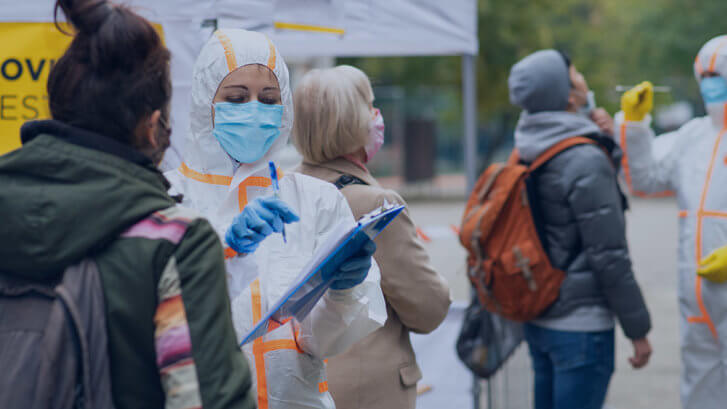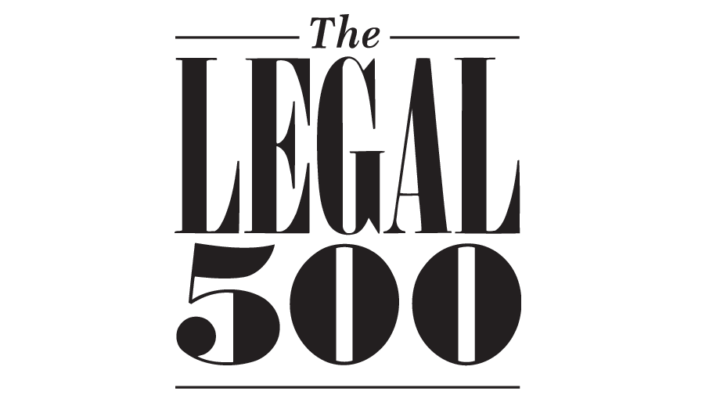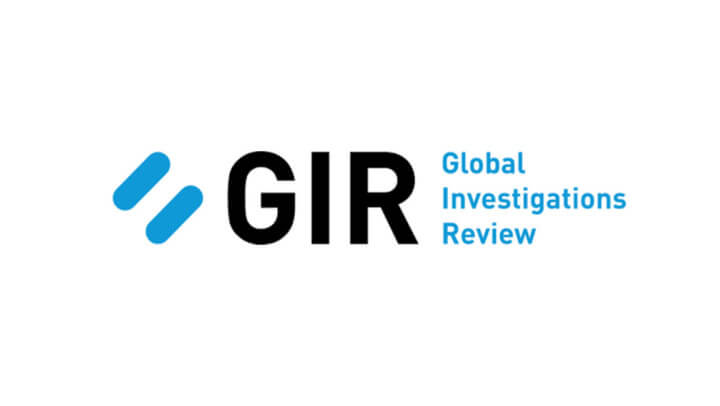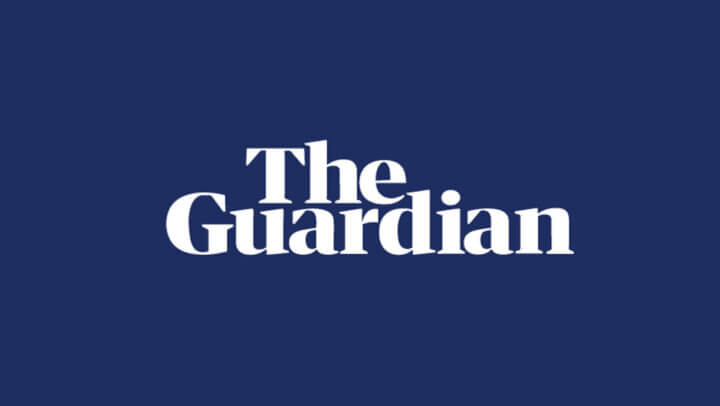Why is a Covid inquiry taking place?
Since March 2020, there have been calls for an inquiry into the government response to the Covid pandemic. An inquiry could provide a forum for understanding what happened and why. This is, in part, to give closure to those affected (which unusually is almost all of us to some degree) while also providing recommendations to help prepare the UK for the next pandemic, an inevitability according to many experts in the scientific community.
The Prime Minister stated in Parliament in July 2020 that “of course we will seek to learn the lessons of the pandemic in the future, and certainly we will have an independent inquiry into what happened”. Almost a year later, in May 2021, he went on to say that “Amidst such tragedy the state has an obligation to examine its actions as rigorously and candidly as possible and learn every lesson for the future”. He confirmed that “the government will establish an independent public inquiry on a statutory basis with full powers under the Inquiries Act 2005”.
What is a public inquiry?
Inquiries (i.e. major investigations) come in many forms but can be broadly categorised into statutory and non-statutory. Public inquiries are statutory inquiries into matters of public concern, governed by the Inquiries Act 2005 (‘the Act’) and the Inquiry Rules 2006 (‘the Rules’).
In contrast, non-statutory inquires can take any form and be established by anyone, although previous iterations of this have also been ministerially led, such as the Hutton Inquiry into the death of Dr David Kelly and the Scott Inquiry into the arms-to-Iraq affair. These inquiries are often similar in style and objectives to statutory inquiries, but without the obligation to have proceedings or findings made public.
When are public inquiries set up?
Section 1 of the Act allows Ministers to establish inquiries where it appears that (a) particular events have caused, or are capable of causing, public concern, or (b) there is public concern that particular events may have occurred. Given the broad nature of this definition, there are few areas of public life that would be precluded from being subject to a public inquiry.
Forming a statutory inquiry under the Act is therefore, ultimately, a political and discretionary decision. They are set up following lobbying by campaigners and interested parties.
Who sets up a public inquiry?
Under Section 5 of the Act, it is for a Minister to specify the setting-up date (before which no evidence can be considered) and the terms of reference of the inquiry, which must be set in consultation with the chairman (see below). The terms of reference are a moveable feast in that he can “amend them if he considers that the public interest so requires”. The power is vested in Ministers of Her Majesty’s Government, and also in Scottish Ministers, Welsh Ministers and Northern Ireland Ministers. Ministers from the devolved administrations have the power to establish inquiries into matters within their remit. Given that much of the response to the pandemic involved devolved powers to some degree, many will argue that they should also be subject to the scrutiny that comes with a public inquiry.
The terms of reference are crucial as they set the framework for the matters to be considered by the inquiry, any particular matters as to which the inquiry panel is to determine the facts and whether the inquiry panel is to make recommendations. The effectiveness of an inquiry can often be traced back to the drafting (good or bad) of the terms of reference. They need to be wide enough to cover all points of public interest but are often inhibited. Ministers may be incentivised to narrow the focus of an inquiry out of fear of criticism of the government’s handling of the matter. Balancing the need for speed and depth is a key issue to be considered by the chairman. Matters to be considered at the Covid inquiry may include the UK’s pandemic preparedness prior to March 2020; the timing, strategy and effectiveness of lockdowns; border policies relating to entry and testing (particularly at the time of the Delta variant); the management of care homes; the provision of personal protective equipment to NHS and other front line at risk workers; test and trace and the effectiveness of the vaccine rollout.
How is the chairman appointed and what do they do?
Under Section 3 of the Act, a statutory inquiry may be undertaken by a single person acting as chairman alone, or by a chairman sitting with other panel members. The appointment of the chairman is by the Minister in writing. The Act provides very limited guidance on appointments and there is normally a real lack of transparency about the process with no guidance or requirement to consult with others.
It is usually a judge who leads an inquiry. This is because judges are experienced in analysing and digesting large volumes of evidence, and reaching conclusions based on that evidence. Extracting information from witnesses, determining facts, conducting proceedings and hearings in a fair and transparent manner, and applying fair procedures consistently are all second nature to a judge. However, in its report, “A Public Inquiry into the Government’s response to the Covid-19 pandemic”, the House of Commons Public Administration and Constitutional Affairs Committee recommended that a Covid inquiry “should be forward-looking and policy focused. As a result, thought should be given to a non-judicial appointment as Inquiry Chair”.
Any lack of knowledge or experience in a particular field can be addressed by appointing suitably experienced inquiry panel members or assessors to assist the chairman. More technical inquiries may need an expert on the subject matter as chairman, as was the case with the E-coli Inquiry.
The relevant legislation gives the chairman latitude to determine the procedure and conduct of the inquiry, subject to a duty to act with fairness and avoid unnecessary cost. The chairman sets the tone and direction of an inquiry, and frequently becomes the public figure of the recommendations and the messages that an inquiry wants to convey. The choice of a chairman is therefore likely to influence the whole operation of the proceedings and its success. As a result, securing public confidence in that individual will be essential to ensuring the integrity of the inquiry’s findings.
At this stage, the chairman, constitution of the panel and terms of reference for the Covid inquiry have not been confirmed to Parliament. There may be consultation and challenges, potentially involving the important legal safeguard of judicial review. Any judicial review of a decision made by a Minister in relation to an inquiry (or by a member of the inquiry panel) must be brought within 14 days after the day on which the applicant becomes aware of the decision, unless that time limit is extended by the court. Unless there is a truly exceptional reason, a court will not extend the time limit for judicial review challenges of public inquiry decisions.
How are panel members appointed and what do they do?
Under Section 4(3), the Minister must consult the person appointed (or proposed to be appointed) as the chairman before appointing any other inquiry panel members. Under section 8(1), in making such appointment, the Minister must have regard to the need to ensure the inquiry panel as a whole has the necessary expertise to undertake the inquiry and the need for balance in the composition of the panel.
Where it is considered that other panel members are required, their role is to provide support to the chairman as necessary to share the workload. They may also be required to undertake an advisory function, to sense-check the chairman’s decision making and thought process. They are usually specifically selected due to their relevant expertise or knowledge on the subject matter of the inquiry and/or the different perspective they may be able to offer to the issues in hand. The existence of a wider panel can also enhance public confidence in the fairness of the process and add credence to the inquiry’s conclusions.
Given the mammoth task at hand, it is unlikely that a Covid inquiry chairman would sit alone. Other panel members are of particular importance to inquiries where issues of race or inequality are likely to come to the fore, something that is inevitable in a Covid inquiry given the disparity in how ethnic minorities and marginalised communities were affected. Panel members may be experts in, for example, public health, epidemiology or care. It may be considered particularly important that panel members understand the international issues involved in this global problem.
How are core participants appointed and what do they do?
The chairman can designate any person as a ‘core participant’, effectively an interested party, if they consent. The chairman will consider whether the person a) played or may have played a direct and significant role; b) has a significant interest; or c) may be subject to explicit or significant criticism.
There is a long list of potential core participants to any Covid inquiry, which may include affected victims or their families, campaigners, protagonists, those whose professional competence is in question, right up to those in the seat of power.
Core participants obtain certain important rights such as the ability to apply to the chairman for permission to ask questions of a witness during oral evidence, to make opening and closing statements to the panel and to receive a copy of the report (or any interim report) prior to publication.
What protections are in place regarding impartiality?
The Act has protections in place designed to ensure the impartiality of the chairman and other panel members. Under Section 9, the Minister must not appoint a person as a panel member if it appears that the person has a direct interest in the matters to which the inquiry relates, or a close association with an interested party, unless, despite the person’s interest or association, his appointment could not reasonably be regarded as affecting the impartiality of the inquiry panel.
Under this section, before a person is appointed as a panel member, he must notify the Minister of any matters that could affect his eligibility for appointment. This duty to notify continues until the inquiry has concluded, should a conflict arise. Panel members are also restricted in undertaking any activity or work that could be regarded as affecting their suitability to serve on the panel.
This can create problems for the Minister responsible for setting up the inquiry. Panel members need to have the knowledge and experience of the subject matter at hand to create public confidence in the inquiry. To have acquired that knowledge and experience, they may have had direct interests in, associations with or connections to the inquiry subject matter and the individuals or organisations involved.
There have been calls from a cross-party group of MPs for the Prime Minister to ensure that the chairman and panel of the Covid public inquiry is not hand-picked by the government, to avoid accusations of political bias.
What powers does an inquiry have?
The availability of appropriate investigative powers is critical in any investigation. Issues cannot be determined if suitable evidence cannot be obtained. Under Section 21 of the Act, the chairman has powers to issue a notice compelling a person to:
- Attend to give evidence or produce relevant documents under his custody or control or any other thing under his custody or control for inspection, examination or testing;
- Within a reasonable period, provide evidence in the form of a written statement or provide any relevant documents in his custody or under his control or produce any other thing in his custody or under his control for inspection, examination or testing.
A recipient of such a notice may make a claim to the chairman that either a) he is unable to comply with the notice; or b) that it is not reasonable in all the circumstances to require him to comply with such a notice (for example, the request is disproportionate as it involves an onerous number of documents). The chairman might choose to vary a notice by extending the deadline, narrowing the categories of information being asked for, or by specifying that the organisation only need to search certain sites for the information.
Organisations such as care homes, hospitals and companies involved in the provision of personal protective equipment may be asked to provide evidence to the inquiry. This evidence may be written, oral or documentary.
It is a criminal offence for the recipient of a notice under Section 21 to fail to comply without reasonable excuse. There are other offences, which can broadly be categorised as obstruction offences, relating to distorting evidence and documents, preventing evidence or documents from being given or produced, supressing or concealing relevant documents and intentionally altering or destroying relevant documents. The maximum penalty is a fine of £1,000 or a term of imprisonment of up to 51 weeks, meaning that the compulsion powers have real enforcement teeth, unlike requests for documents made by, for example, select committees.
Can a witness incriminate themselves by cooperating with an inquiry?
Under Section 22 of the Act, a witness to a statutory inquiry is able to refuse to provide evidence: (i) because it is covered by legal professional privilege; (ii) because it might incriminate him or his spouse or civil partner; or (iii) because it relates to what has taken place in Parliament.
Under Section 22(2), it is expressly provided that an assertion that documents or information should be withheld from the inquiry (or from public disclosure) on the grounds that they are immune from disclosure in the public interest (public interest immunity) can be made, for example in the interests of national security. The Government’s policy on claiming public interest immunity is that disclosure would need to cause real damage or harm to the public interest and that this outweighs the public interest in open justice. There also is also an exemption for the Crown in Section 23, prohibiting information being revealed, subject to a public interest balance, where information held by any person should not be revealed in order to avoid a risk of damage to the economy of the United Kingdom. Due to the subject matter, it is conceivable that there will be arguments that material falls within these exemptions.
How long do inquiries take?
It is undeniable that both statutory and non-statutory inquiries are lengthy, costly affairs. The Minister may impose a time limit in the terms of reference. Time limits are generally seen as positive as they focus minds, emphasise the importance of producing answers and embed efficiencies in the process.
How does an inquiry end?
An inquiry usually ends after the delivery of the report of the inquiry when the chairman notifies the Minister that the inquiry has fulfilled its terms of reference.
A report to the Minister must set out the facts determined by the inquiry panel and, where required by the terms of reference, the recommendations of the panel. Interim reports can be provided at earlier stages in the inquiry and this may be desirable where there is an urgent issue to address. Subject to the prevalence of Covid at the time of the inquiry, this may be relevant in this instance.
Before including any explicit or significant criticism of any person in an inquiry report or interim report, the chairman must send that person a warning letter and give them a reasonable opportunity to respond.
The inquiry report will be the measure of success of the inquiry itself. The extent to which it has been successful in its fact-finding mission will dictate whether it can provide significant recommendations and satisfy participants and the wider public. However, it is what happens after the report which is most important i.e. the existence of the political will to implement any recommendations such that they have a positive impact in the future.
What happens when an inquiry is over? Will criminal prosecutions follow?
Inquiries are precluded from determining any person’s civil or criminal liability, although “an inquiry panel is not to be inhibited in the discharge of its functions by any likelihood of liability being inferred from facts that it determines or recommendations that it makes” (Section 2 of the Act).
In some recent inquiries, the Attorney General has given undertakings to witnesses concerned regarding criminal liability along the following lines: “To undertake in respect of any person who provides evidence to the inquiry that no evidence he or she may give before the inquiry, whether orally or by written statement, nor any written statement made preparatory to giving evidence nor any document produced by that person to the inquiry will be used in evidence against him or her in any criminal proceedings, except in proceedings where he or she is charged with having given false evidence in the course of this inquiry or having conspired with or procured others to do so”. Such an undertaking should not be confused with full immunity against prosecution.
Criminal prosecutions could be considered against both corporate and individual defendants in relation to matters considered by the Covid inquiry. In the last decade, several concluded inquiries have had associated prosecutions (see the prosecutions relating to matters considered by the Leveson, Mid Staffordshire NHS Foundation Trust and Death of Azelle Rodney inquiries).
Potential offences relating to Covid deaths which could be investigated include corporate manslaughter, gross negligence manslaughter, health and safety offences and care offences (such as failings relating to the provision of safe care and treatment). Some of the likely core participants who may be open to criticism could be at most risk.
Despite recent allegations of tens of thousands of avoidable Covid deaths, for a variety of reasons, including potential evidential difficulties, public interest factors and statutory exemptions (such as Crown immunity under the Health and Safety at Work etc. Act 1974 and the exclusion of liability in certain circumstances relating to public policy decisions, exclusively public functions and emergency responses under the Corporate Manslaughter and Corporate Homicide Act 2007), it is currently considered unlikely that prosecutions of senior actors will follow. However, although the statutory exemptions provide a degree of immunity to prosecution, as with vaccinations, the immunity is not 100% effective and, depending on which variants of allegations are uncovered, prosecutions and convictions could follow. There is also the risk of significant reputational damage, irrespective of any prosecutions brought.
When will the COVID inquiry take place?
The inquiry is currently expected to commence in Spring 2022.




